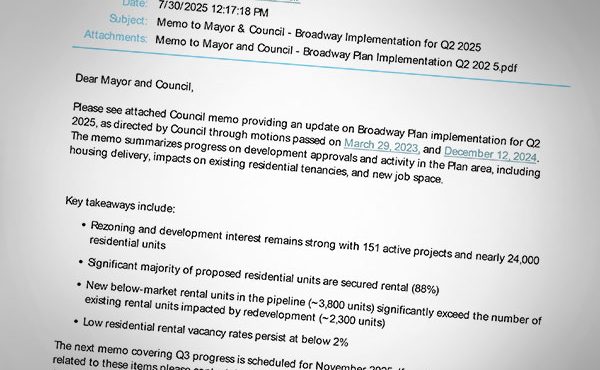As 2012 comes to a closes and our Spacing Vancouver contributors take a well deserved break, we would like to take the opportunity to look back of what we’ve covered over the last 12 months. Each day this week, we will be posting some of our favourite posts from the past year.
Human Transit: How Clearer Thinking about Public Transit Can Enrich Our Communities and Our Lives
Originally posted on January 24, 2012


Author: Jarrett Walker (Island Press, 2012)
Only if we embrace the facts of transit, and discover the opportunities they present, will our cities, and our transit, be human. – Jarrett Walker
Whether you are transit geek, a SkyTrain rider or an interested citizen, you will learning something by reading Human Transit: How Clearer Thinking about Public Transit Can Enrich Our Communities and Our Lives. The newly published book by Jarrett Walker is an accessible guide to thinking about public transit in an informed and systemic manner. It provides professionals, users, and citizens alike with the background to have informed conversations about this important topic.
Jarrett Walker is transit consultant who has been designing public transit systems for over 20 years and author of the popular transit blog HumanTransit, from which much of the book is based. Unlike a lot of transit analysts, who write from a east coast perspective—based on dense, pre-automobile urban cities— Walker writes with a uniquely west coast—and post-automobile city—outlook. This outlook, informed by living and working in cities such as Portland, Sydney and Vancouver, make the book extremely relevant for Spacing Vancouver readers as well as others interested in this perspective.
Walker is a transit technology agnostic. To him technology is a tool, a means to an end; not the end itself. As such, Human Transit focuses on the ‘what’ and ‘why’ of transit, not just the ‘how.’ The book goes beyond the usual transit debates of whether buses, street cars, light rail or subways are better. Instead, it looks at the basic fundamentals of transit, including concepts like speed, frequency, span, capacity and reliability.
If the debate over transit technologies is not distracting enough, transit planning is further confused by a lack of consensus over the basic goals of public transit.


